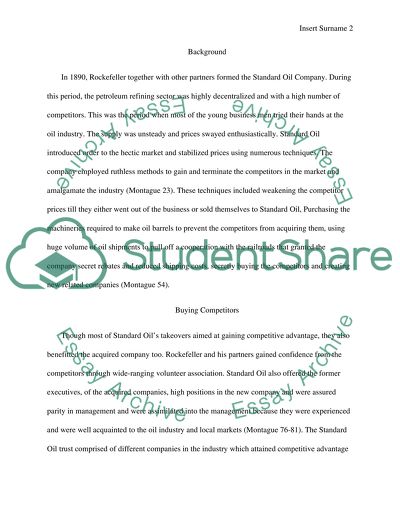Cite this document
(“Standard Of Monopolized The Oil Industry Essay Example | Topics and Well Written Essays - 1000 words”, n.d.)
Retrieved from https://studentshare.org/history/1492842-how-standard-oil-monopolized-the-oil-industry
Retrieved from https://studentshare.org/history/1492842-how-standard-oil-monopolized-the-oil-industry
(Standard Of Monopolized The Oil Industry Essay Example | Topics and Well Written Essays - 1000 Words)
https://studentshare.org/history/1492842-how-standard-oil-monopolized-the-oil-industry.
https://studentshare.org/history/1492842-how-standard-oil-monopolized-the-oil-industry.
“Standard Of Monopolized The Oil Industry Essay Example | Topics and Well Written Essays - 1000 Words”, n.d. https://studentshare.org/history/1492842-how-standard-oil-monopolized-the-oil-industry.


